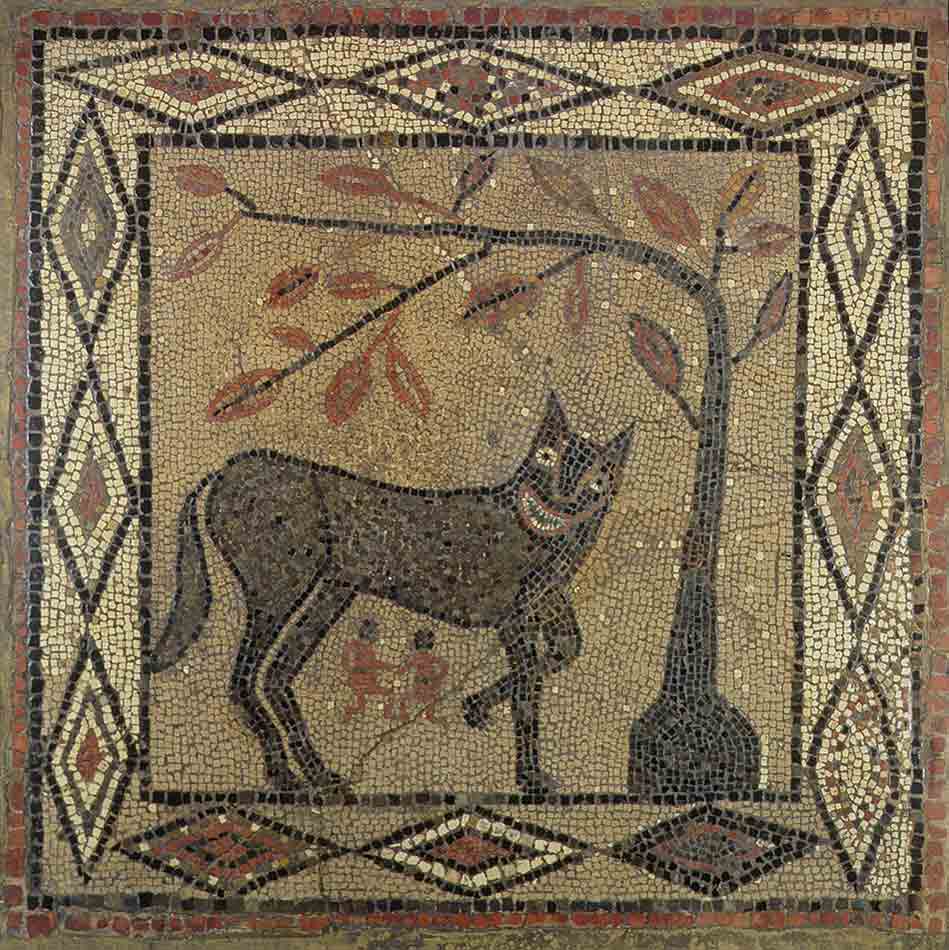Spring should be a time of portents and premonitions, winged harbingers (“I dreaded that first Robin, so,” as Emily Dickinson put it with characteristic ambivalence) and new beginnings.
This thought struck me as I read Megan Marshall’s sympathetic new biography of Margaret Fuller, which opens with a familiar phrase from Virgil’s Aeneid, one that inspired an essay Fuller wrote during her precocious childhood. Possunt, quia posse videntur means, roughly, “They can because they think they can,” and describes a team of rowers who, according to Marshall, “will themselves to win a race.” The phrase, which Fuller thought demonstrated “confidence in the future,” gives Marshall an overarching theme for Fuller’s fiercely driven life.
But Fuller also made use of the Aeneid when she was less confident of the future. She was known to perform the ancient form of divination in which a passage of Virgil selected at random is assumed to reveal what lies ahead. Sir Philip Sidney described the practice, with a dash of skepticism, in his Defence of Poesy:
And so far were they carried into the admiration thereof, that they thought in the chanceable hitting upon any such verses great fore-tokens of their following fortunes were placed; whereupon grew the word of *Sortes Virgilianae*, when by sudden opening Virgil’s book they lighted upon some verse of his making.
In 1851, a few months after Fuller drowned in a shipwreck in view of Fire Island, Thoreau and Emerson were reminiscing about their close friend, who had bravely covered the popular 1848 uprising in Rome. (She had been returning with her husband and child from Italy when she died.) Thoreau joked about Fuller’s “whims and superstitions,” and mentioned that she indulged in the drawing of Virgilian sortes, or “lots.” Emerson refused to join in the ridicule that had become habitual among Fuller’s male friends, and “gravely” countered, according to Thoreau, that Fuller was “one of those persons whose experience warranted her attaching importance to such things.”
I thought I might follow Fuller’s lead, and greet the spring by serendipitously dipping into a trusted book for guidance. Instead of Virgil, I thought of consulting something equally inscrutable from the more recent past—Dickinson’s complete poems, say, or Faulkner’s Absalom, Absalom!
But I decided to stick with Virgil, time-tested after all, and translated by the poet Robert Fitzgerald, whom I had known in graduate school, an appealing guide in his own right. (Fitzgerald gave only three grades in his course on writing verse: NB, NTB, and NG. These stood for “Not Bad,” a very high grade rarely given, “Not Too Bad,” and “Not Good.”)
I determined to draw my first lot on March 21. The previous night, the equinox itself, my wife and I had heard, around midnight, a strange howling in the distance, probably a coyote, or perhaps an owl, though we both allowed ourselves to think that this was a wolf, perhaps a she-wolf, eager to found some new Rome on the outskirts of Amherst, Massachusetts.
That morning, still groggy, I closed my eyes, opened the book at random, and let my finger alight on my first line from Virgil, “To deepen it, to throw an earthwork up,” from the following passage:
… Aeneas marked his line
Of walls with a low trench, then toiled away
To deepen it, to throw an earthwork up
With palisades, camp style, around that post,
Their first, on the riverside.
I thought about the passage as I walked our Australian Shepherd, Allie, on our morning sortie. The verses seemed to allude to the landscape below our house, which is riven with old clay pits, a meandering brook, and the ruins of a defunct brick factory. Aeneas was laying out the lines of a great city; our own industrial countryside is reverting to pastoral woods and meadows. But how exactly was I “to deepen it”? The passage shifted in my mind, as I brewed a second espresso and headed for my desk, and now seemed to me to be about the hard work of writing: marking a line and toiling away and trying to deepen it.
Day 2, March 22, I drew the phrase “A slave woman who knew Minerva’s craft”:
… Glad for the rescued ship
And crew, Aeneas gave the promised gift:
A slave woman who knew Minerva’s craft,
The Cretan Pholoë, with nursing twins.
In one of his lesser books, Graham Greene, a habitual practitioner, observed that the sortes “do not always work,” and I wondered if that might be the case with this enigmatic phrase. It occurred to me that Margaret Fuller would have been glad for that rescued ship. I wasn’t sure precisely what Minerva’s craft referred to—Minerva is associated with both weaving and shipbuilding.
Advertisement
But the nursing twins interested me. According to legend, Romulus and Remus, those other founders of Rome, were rescued on the banks of the Tiber by a she-wolf who suckled them. Livy says there may be some confusion about the story, however, since Lupa (she-wolf) is Roman slang for a prostitute. Maybe the tale of the she-wolf disguised an all-too-human story of abandonment.
This business of adoption—by wolves or humans—has been on my mind lately. After many years of sporadic contact, I have been happily back in touch with my sister, who was adopted by our family in 1963, when she was three years old. She had always been referred to in our family as a “Korean war orphan,” the daughter, supposedly, of a prostitute from Seoul and an American soldier.
Fifty years later, it has dawned on us that these details might not be quite accurate. Adoption is so often like this: a set of stories given to the child and the adoptive family to smooth things over and separate the past from the future. (Korean adoption records in particular, as I learned from the recent documentary Somewhere Between, are notoriously unreliable.) My sister was not an orphan, at least not in the sense of having dead parents, and the Korean War was long over when she was born. We are starting over, at this late date, eager to know more about the facts of her background and wanting to build a better foundation, like Aeneas’s earthworks, for our fraternal relationship.
By coincidence, I’ve been writing about Kipling, who had a terrible experience as a child in a foster family in England and then wrote movingly of a child, Mowgli, adopted by a family of friendly wolves. My own father was taken in, after fleeing Nazi Germany as a Jewish refugee, by a kindly English family of German-Jewish origin, whose child, oddly enough, happened to be called “Wolf.”
Day 3, March 23: “A plan that grows on me.”
…Now attend
To a thought I’m turning over in my mind
A plan that grows on me…
Book IX, from which this passage comes, is titled, in Fitzgerald’s version, “A Night Sortie, A Day Assault,” a good description of the writer’s life, along with the admonition, always good advice for a writer, to “attend” to things.
Day 4, March 31: “A thing one shudders to recall.”
…Now she saw before her
A thing one shudders to recall: on altars
Fuming with incense where she placed her gifts
The holy water blackened, the spilt wine
Turned into blood and mire.
I happened to draw this passage, after a week without guidance, on Easter morning and found it so disturbing, so redolent of death and a more sinister resurrection, that I immediately decided that it would be the last I’d consult this time around.
Here, I found the reference to gift-giving again, though in more troubling form. I also found a kind of mirror reflecting my own divination: poor Dido, about to be abandoned by Aeneas, is herself looking for portents of a future she knows will be unbearable. But the specific words of my lot were “A thing one shudders to recall.” This seemed past-oriented, not turned to the future, or perhaps an indication that, as therapists of trauma tell us, those who cannot face the past, and thereby turn trauma into memory, are condemned to repeat it.
The trauma here, I couldn’t help but feel, had something to do with the trauma of adoption, of lost children trying to trace the moonlit breadcrumbs back to their house, only to learn that the crows have eaten them. Margaret Fuller never found her way back home. Homeless Aeneas, abandoning Dido along the way, founded a new city on the site where abandoned children had been rescued by a wolf. And now, with Virgil’s help (or Fitzgerald’s, who translated the Latin idiom horrendum dictu, literally “terrible to tell,” as “a thing one shudders to recall”), I had been given the task to help sort out the tangled abandonments of my own family. Perhaps that was enough, more than enough, for one round of divination via Virgil.
What exactly did Emerson mean, I wondered, when he said that Margaret Fuller was “one of those persons whose experience warranted her attaching importance to such things”? She had lived in Cambridge, New York, and Rome, met the major writers and revolutionaries of her time, edited the Dial and written for the Tribune. Did he mean that her experience was both so wide and yet so troubling, in her relations with men who envied her learning or resented her claims for the liberation of women, that she could be excused for seeking solace in divination? Or did he mean that she was such a good reader of literary works that lines from Virgil would never be lost on her? A third possibility is that Emerson was alluding to a mystical aspect of Fuller’s temperament, the personal “unfolding” she wanted all women and men to have access to. Maybe Virgil could help us answer the question.
Advertisement
A happy spring to all!




